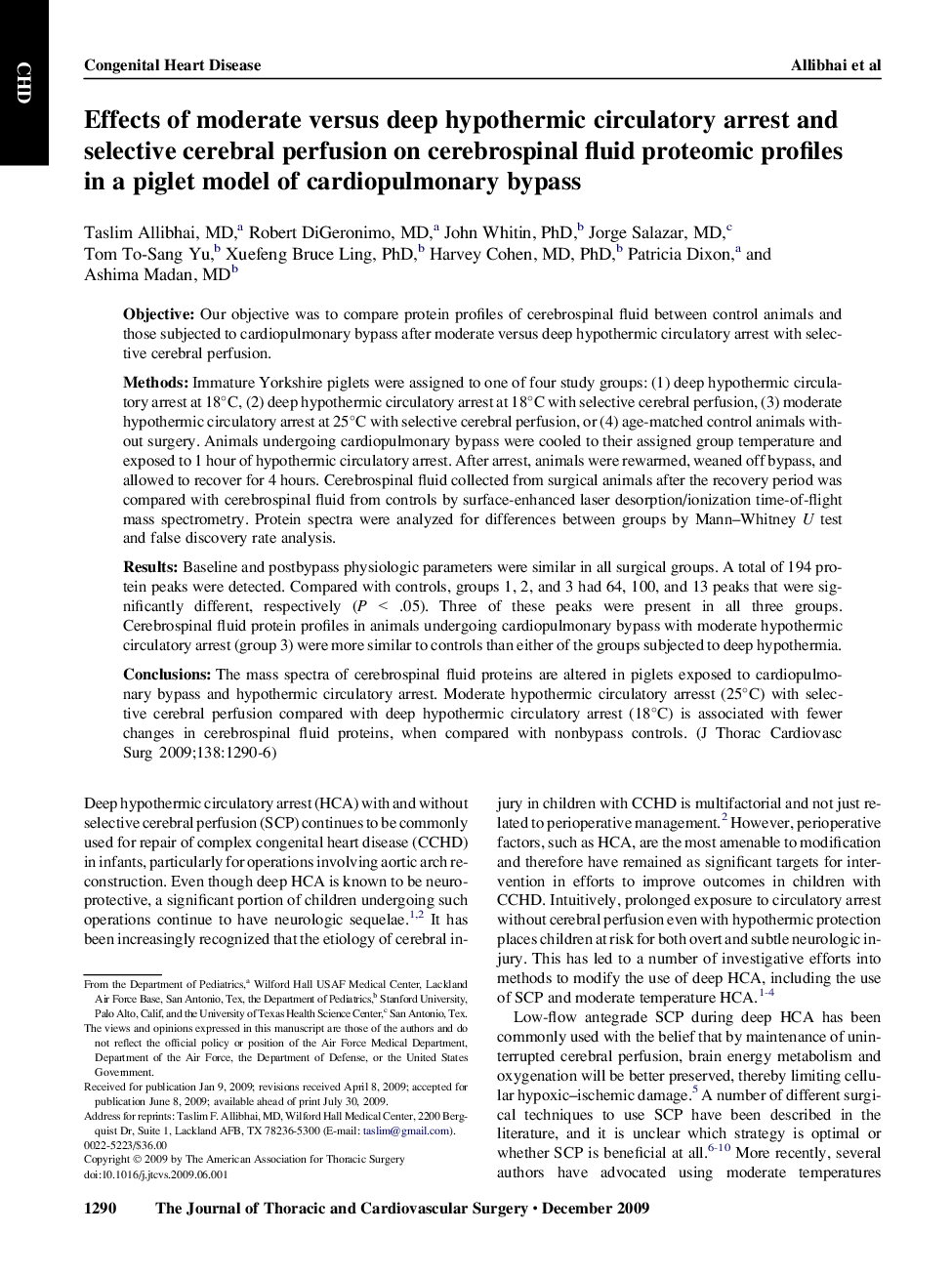| کد مقاله | کد نشریه | سال انتشار | مقاله انگلیسی | نسخه تمام متن |
|---|---|---|---|---|
| 2984938 | 1578667 | 2009 | 7 صفحه PDF | دانلود رایگان |

ObjectiveOur objective was to compare protein profiles of cerebrospinal fluid between control animals and those subjected to cardiopulmonary bypass after moderate versus deep hypothermic circulatory arrest with selective cerebral perfusion.MethodsImmature Yorkshire piglets were assigned to one of four study groups: (1) deep hypothermic circulatory arrest at 18°C, (2) deep hypothermic circulatory arrest at 18°C with selective cerebral perfusion, (3) moderate hypothermic circulatory arrest at 25°C with selective cerebral perfusion, or (4) age-matched control animals without surgery. Animals undergoing cardiopulmonary bypass were cooled to their assigned group temperature and exposed to 1 hour of hypothermic circulatory arrest. After arrest, animals were rewarmed, weaned off bypass, and allowed to recover for 4 hours. Cerebrospinal fluid collected from surgical animals after the recovery period was compared with cerebrospinal fluid from controls by surface-enhanced laser desorption/ionization time-of-flight mass spectrometry. Protein spectra were analyzed for differences between groups by Mann–Whitney U test and false discovery rate analysis.ResultsBaseline and postbypass physiologic parameters were similar in all surgical groups. A total of 194 protein peaks were detected. Compared with controls, groups 1, 2, and 3 had 64, 100, and 13 peaks that were significantly different, respectively (P < .05). Three of these peaks were present in all three groups. Cerebrospinal fluid protein profiles in animals undergoing cardiopulmonary bypass with moderate hypothermic circulatory arrest (group 3) were more similar to controls than either of the groups subjected to deep hypothermia.ConclusionsThe mass spectra of cerebrospinal fluid proteins are altered in piglets exposed to cardiopulmonary bypass and hypothermic circulatory arrest. Moderate hypothermic circulatory arresst (25°C) with selective cerebral perfusion compared with deep hypothermic circulatory arrest (18°C) is associated with fewer changes in cerebrospinal fluid proteins, when compared with nonbypass controls.
Journal: The Journal of Thoracic and Cardiovascular Surgery - Volume 138, Issue 6, December 2009, Pages 1290–1296